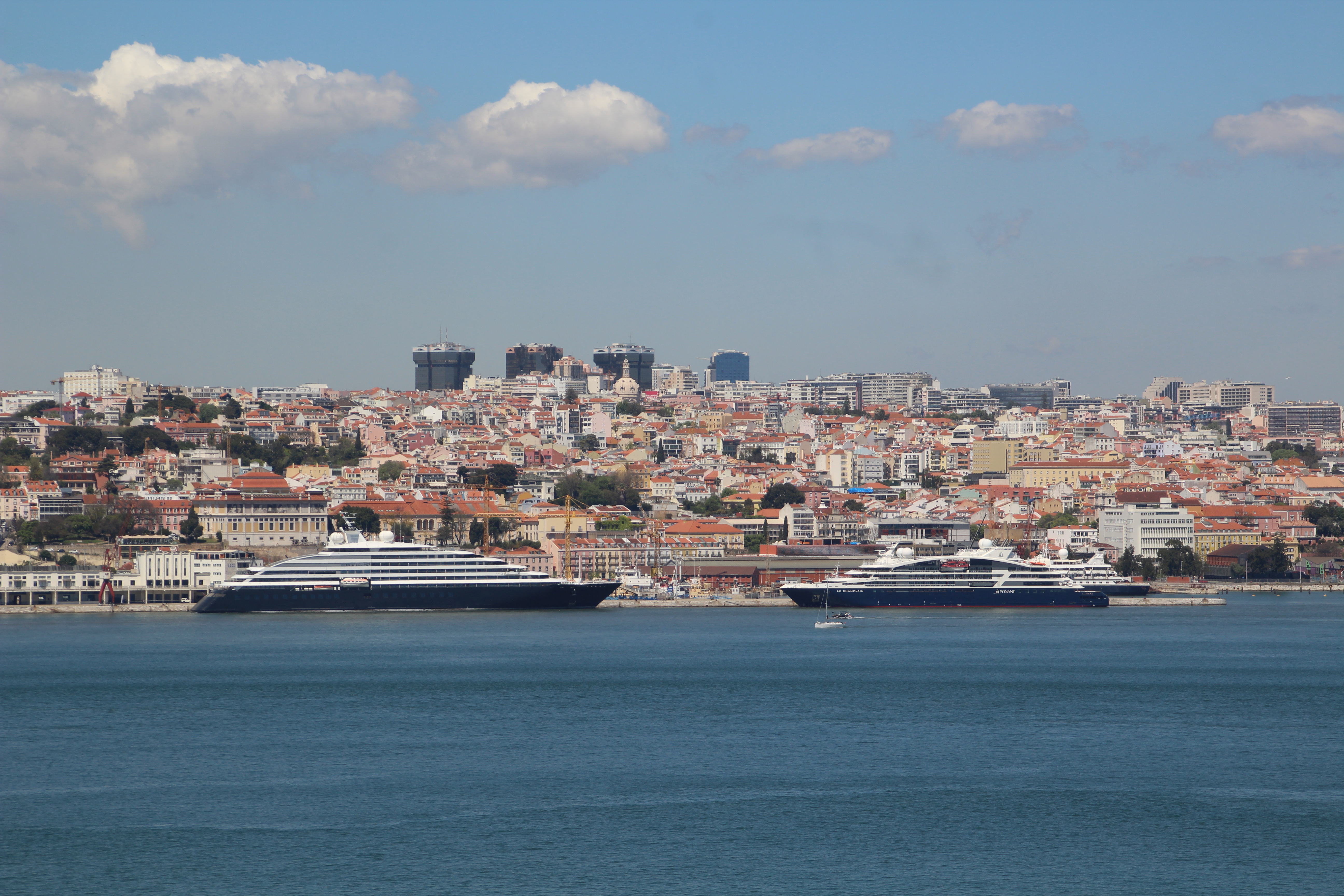Este website utiliza cookies. Ao continuar a navegação está a aceitar a sua utilização.
Caso pretenda saber mais, consulte a nossa política de privacidade.

21 November, 2023
Cruise Activity in Lisbon with Minimal Impact on Air Quality
The pollutant emissions from cruise ships do not significantly alter the air quality in Lisbon. This is the conclusion of the study 'Modeling and Analysis of the Impact of Cruise Ship Traffic on Air Quality in the Metropolitan Area of the City of Lisbon, Portugal,' promoted by the Cruise Lines International Association (CLIA) in partnership with the Department of Mechanical Engineering at the Rovira i Virgili University (Tarragona, Spain).
The analysis reveals that pollution concentration levels in the Portuguese capital are not significantly influenced by cruise activity but rather by other factors such as other modes of transport or residential sources. The study analyzed levels of nitrogen dioxide (NO2), sulfur dioxide (SO2), carbon monoxide (CO), and particulate matter (PM10).
Even with a much higher traffic of ships than the Cruise Terminal can accommodate, the results for NO2 levels would have a 'reasonable' or 'moderate' classification according to the Air Quality Index (AQI) of the European Environment Agency (EEA).
New Machine Learning (ML) Technique
This study applies a new methodology developed by the research team at Cadfluid Solutions/Rovira i Virgili University, based on Machine Learning (ML) techniques that isolate the impact of cruise ships on air quality in Lisbon. Subsequently, Oxford Economics conducted the report 'Environmental Impact of Cruise Traffic in Lisbon' with the analysis of all results.
According to the analyzed data, any contribution of cruise ships to the increase in local levels of various atmospheric pollutants such as SO2 and PM10 is very limited. In terms of the quantity of carbon monoxide and ozone in local air quality, the impact of cruise activity is even insignificant.
Positive Results for the Cruise Sector
"Although these results are quite positive, we continue to work to improve the sustainability of the activity," says Carlos Correia, President of the Board of Directors of the Lisbon Port.
"Environmental sustainability issues are strategic for decision-making, and for this reason, the Lisbon Port has a set of ongoing actions such as onshore power supply, monitoring air and water quality in the surrounding areas of the Lisbon Cruise Terminal, and the implementation of a system to assess and monitor emissions from cruise ships during their call. We are strongly convinced that Lisbon, as a port and destination, ensures a sustainable response to the challenges we all face today and tomorrow," emphasizes Carlos Correia.
Sascha Gill, Vice President of Sustainability at CLIA, emphasizes: "These data show, for the first time, the limited impact of cruise activity on air quality in the city of Lisbon compared to other modes of transport. We can be sure that the measures taken by the industry to improve its environmental performance are making a difference and will continue to do so for the benefit of future generations."
"The cruise industry continues to invest in the development of new environmental technologies, such as transitioning to cleaner fuels to help reduce emissions and increase energy efficiency," she adds.
In the future, the development of technological solutions, such as transitioning to cleaner fuels, increasing onshore power supply, and designing more energy-efficient ships, is expected to improve the environmental footprint of the cruise industry.
